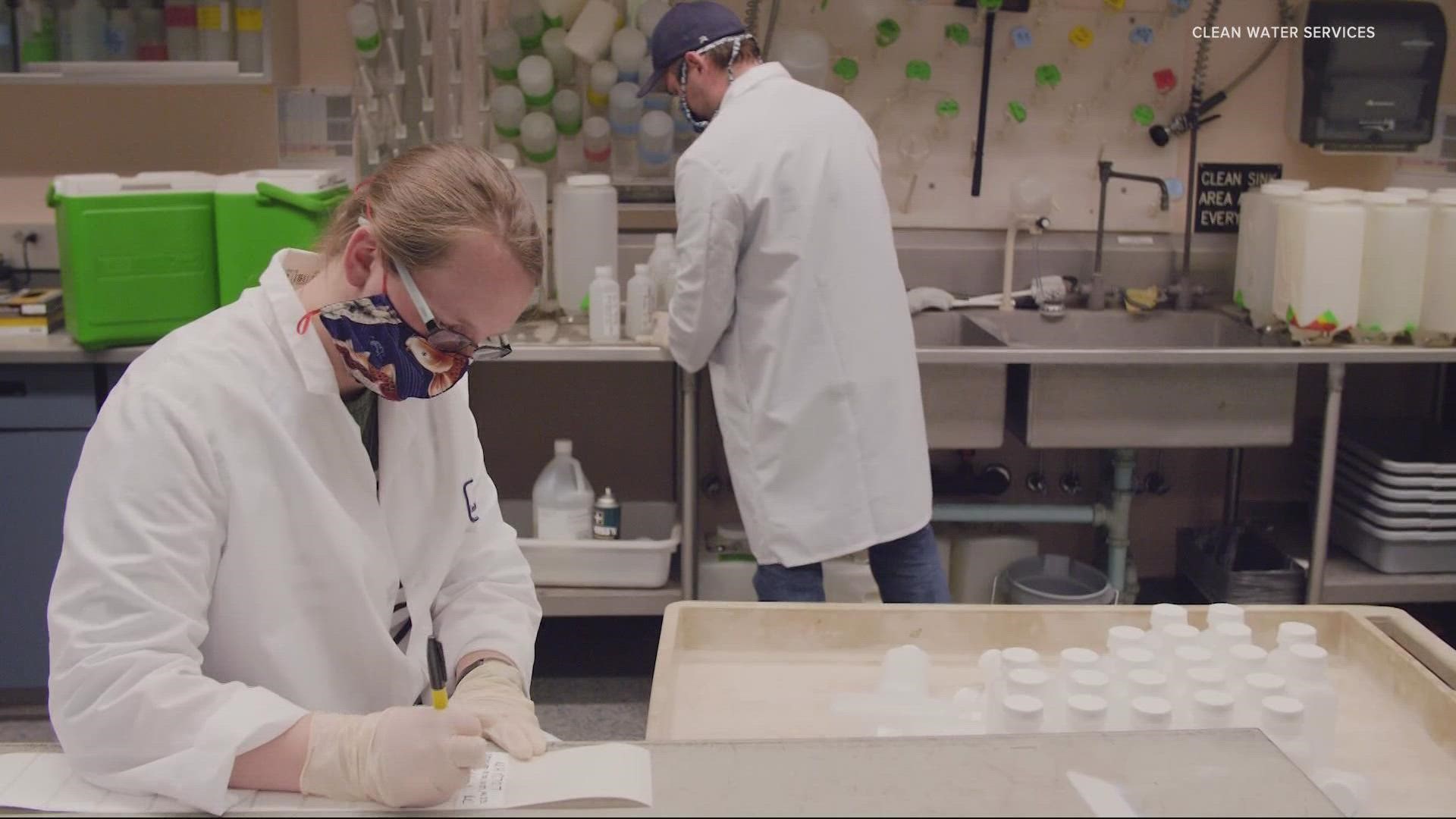CORVALLIS, Ore. — We'd all like the pandemic to be over — but health experts will tell you that COVID-19 is not going away. As we move into the next phase of the pandemic, those tracking how prevalent the virus is in our communities may rely even more on what's getting flushed down the drain.
Wastewater samples are collected at treatment facilities in about 40 locations across Oregon, then sent to Oregon State University to be tested a couple of times a week. Experts say it's a low-cost and accurate read on how much COVID is in a community.
"With a single sample, we can monitor the health of an entire community — which is very powerful, and very cost-effective," said Tyler Radniecki, a professor at OSU leading the sewer surveillance program.
Throughout the pandemic, data from these samples reflected the bumps and surges of the virus. Current data on the Oregon Health Authority's COVID wastewater monitoring dashboard shows most communities are seeing a plateau in the amount of COVID present.
"The waste water treatment plants in these communities, they collect a sample over a day, they filter it, and then they mail it to us," Radniecki explained. "Once we get it in the mail, we then extract the virus off of that filter, and at that point we can quantify the concentration of the virus in the wastewater, and also run it through our sequencing facility in order to determine what variants are present."
It's been one month since the state dropped most COVID protocols. Masks are now more of a suggestion, and the virus isn't as front and center. Radniecki says tracking the virus through wastewater is perhaps the best way to monitor how COVID-19 behaves moving forward.
"Wastewater is extremely reliable," he said. "More reliable oftentimes than case counts. This type of surveillance is very passive, so you as an individual do not have to do anything. You can go out and live your normal life and you are still contributing to our samples."
The Oregon Health Authority announced that the wastewater monitoring program is sticking around. OSU and Radniecki's team will monitor wastewater until 2023.
"It just gives you a better sense of what is happening in your community," Radniecki said. "Early warnings for potential future waves that can be very important. If it dies down over the summer, for instance, what is going to happen by next fall?"

